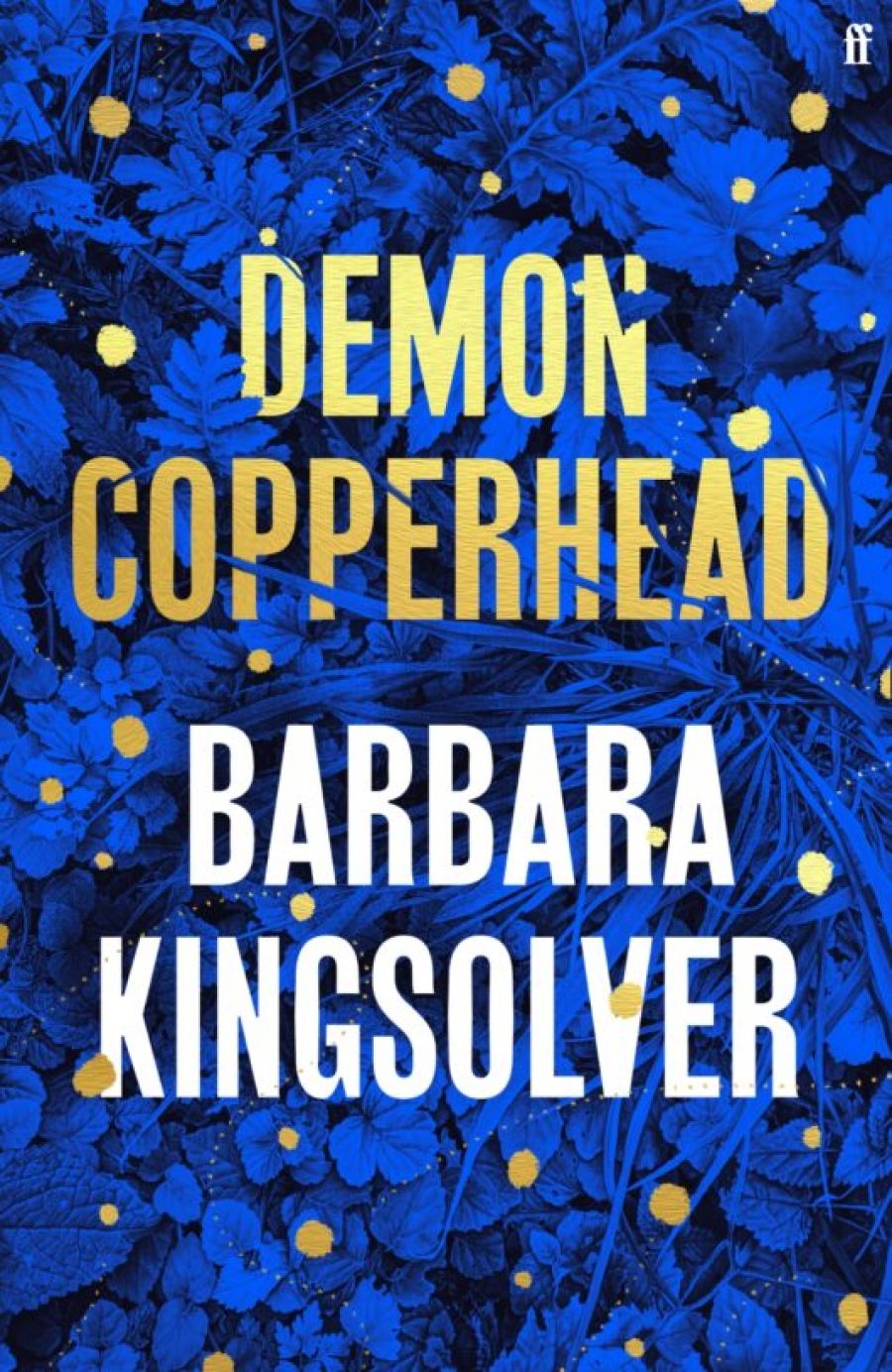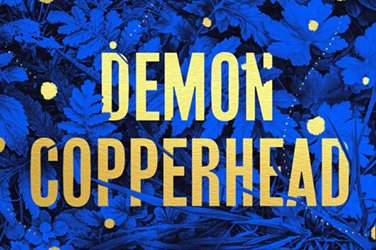
- Free Article: No
- Contents Category: Fiction
- Review Article: Yes
- Article Title: ‘A four-star shit show’
- Article Subtitle: The spirit of comic rambunctiousness
- Online Only: No
- Custom Highlight Text:
The dedication in Barbara Kingsolver’s new novel reads ‘For the survivors’, and its epigraph is taken from Charles Dickens’s David Copperfield (1849), to which Kingsolver’s title pays a sly homage. Her book is a self-conscious reworking of Dickens’s famous novel about an orphan making his way in the world, with Kingsolver’s treatment being narrated by a boy born as Damon Fields in Lee County, Virginia. He acquires his nickname partly from the colour of his hair and partly from the venomous copperhead snake, and after losing his father and mother he finds himself thrown back on his own resilience and talents to keep moving forward. There are many structural parallels with Dickens’s novel – the malevolent Uriah Heep, for example, morphs here into a similarly sinister figure known as ‘U-Haul’ – but these literary allusions never become too intrusive, and Kingsolver’s novel is robustly realistic in its general demeanour.
- Featured Image (400px * 250px):

- Alt Tag (Featured Image): Paul Giles reviews 'Demon Copperhead' by Barbara Kingsolver
- Book 1 Title: Demon Copperhead
- Book 1 Biblio: Allen and Unwin, $32.99 pb, 548 pp
In the past, I have sometimes found Kingsolver’s fiction to be uncomfortably burdened with Christian rhetoric, and there are elements of subdued religiosity permeating this novel, as when Demon describes April as ‘the month of the whole sorry world praying for deliverance’. For the most part, however, the narrator’s energetic and engaging idiom scrupulously avoids sentimentality and draws the reader in through its often vulgar but endearingly rebarbative account of the various torments he undergoes. Demon aptly describes his childhood as ‘a four-star shit show as far as I’d ever seen, so I was glad to be done with it’.
Kingsolver lives and works on a farm in the Appalachian Mountains, and one of the themes that runs through this novel is the way rural communities are neglected by contemporary American society. Demon observes how ‘the superhero that looks out for farms instead of cities’ is a figure entirely absent from US popular culture, with television’s Beverley Hillbillies representing for most Americans their fixed idea of country folk as ‘Hicks, rednecks’, and the Appalachian region of Kentucky, Tennessee, and Southwest Virginia widely understood to be ‘the dog of America’.
Demon distinguishes sharply between the kind of practical knowledge and sense of satisfaction taken from planting tobacco crops, and an academic environment where you are treated as a ‘dumbass’ if you don’t know ‘the difference between a state and a commonwealth’. Though Kingsolver does not press this point unduly, there is a strong sense here of rural parts of the republic being patronised by urban centres in the same way that Demon himself is patronised by adults. His comment on how these people are demeaned by stereotypes such as ‘Rednecks’ and ‘Deplorables’ offers a broader insight into the conservative consciousness of present-day America. Because of the extravagant follies of Donald Trump himself, it has been too easy for commentators to dismiss the rationale, resentments, and sense of injustice felt by the many people off the beaten track who gravitated towards Trump’s campaigns, and Demon Copperhead offers perceptive insights into this way of thinking and feeling.
In her acknowledgments, Kingsolver writes that her book is for ‘the kids who wake up hungry in those dark places every day, who’ve lost their families to poverty and pain pills, whose caseworkers keep losing their files’. Yet this novel doesn’t read at all like a plea for sympathy. Instead, it is carried by a spirit of comic rambunctiousness that is characteristic of the best American fiction, and it is a pleasure to read, through all of its 548 lively pages. Part of the book’s charm derives from the slightly twisted pleasure it takes in the local details of Lee County life – the bargain aisles of Walmart, the bad television, the used-car commercials from Crazy Marv (‘At these prices you’ll know I’ve lost my marbles’). This is a polemical novel that manages to keep its polemic within check. Rather than preaching or pleading, it frames its pointed ethical directives within a self-mocking, empathetic narrative that renders the novel’s political impact all the more compelling.


Comments powered by CComment